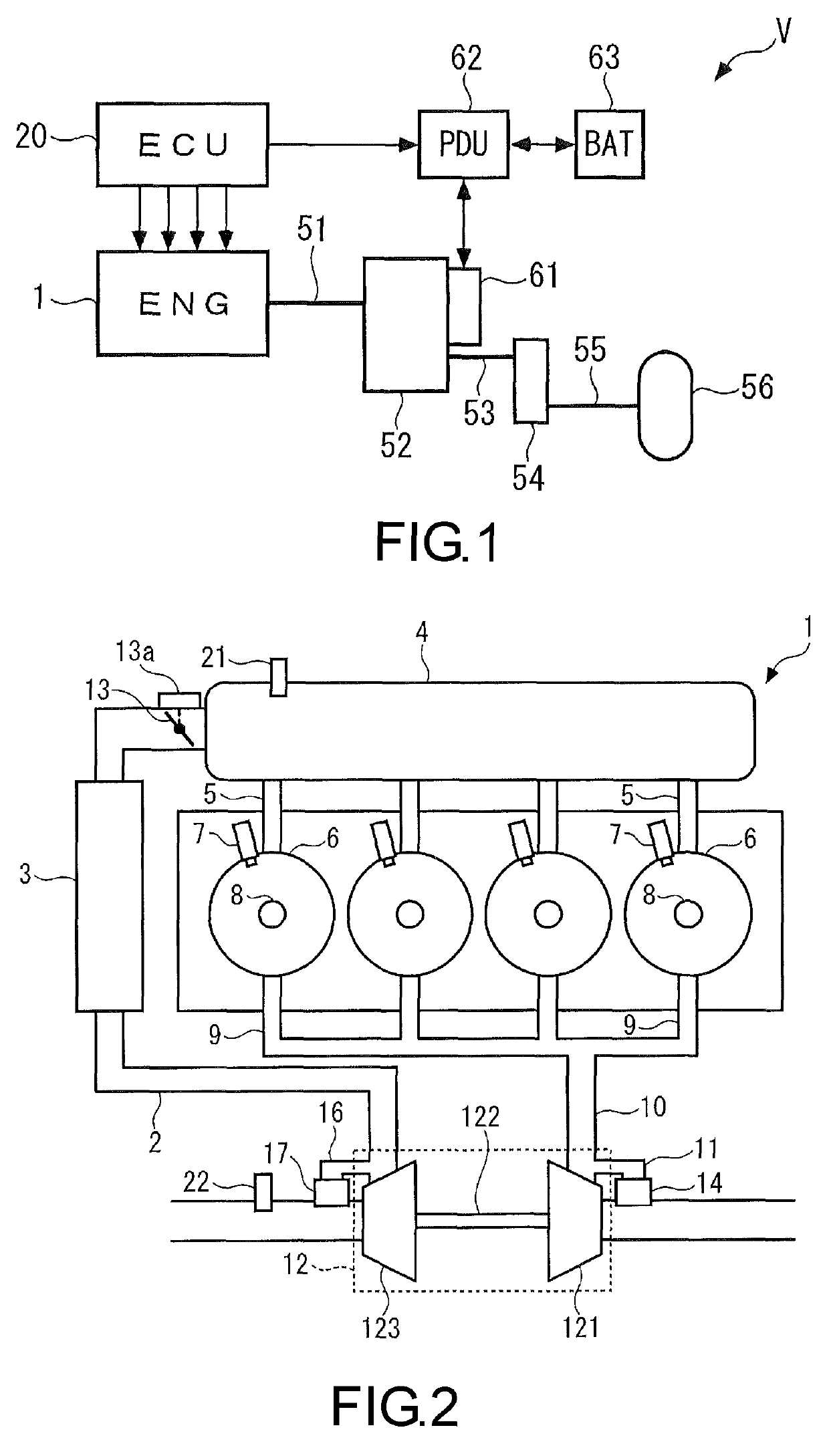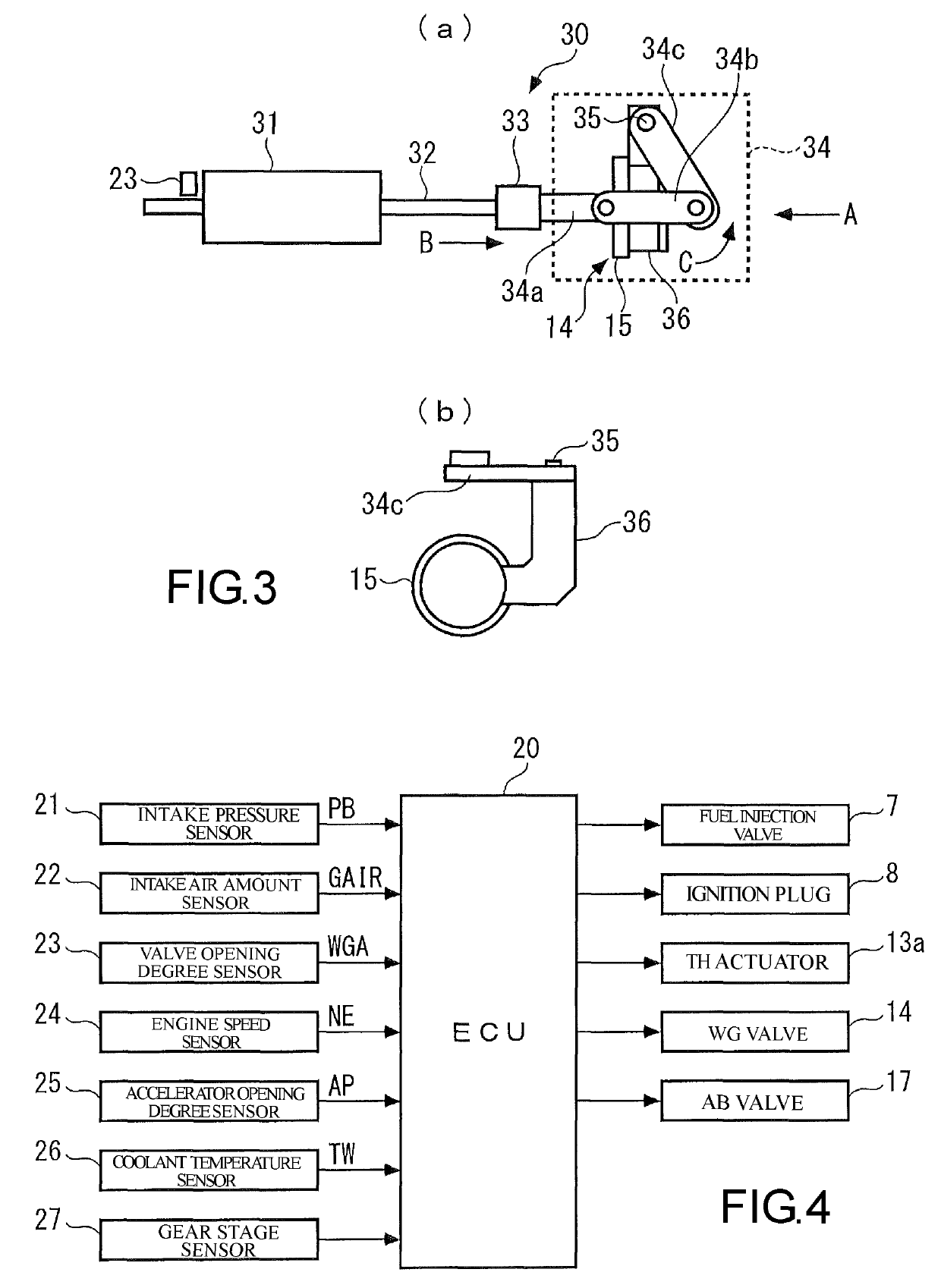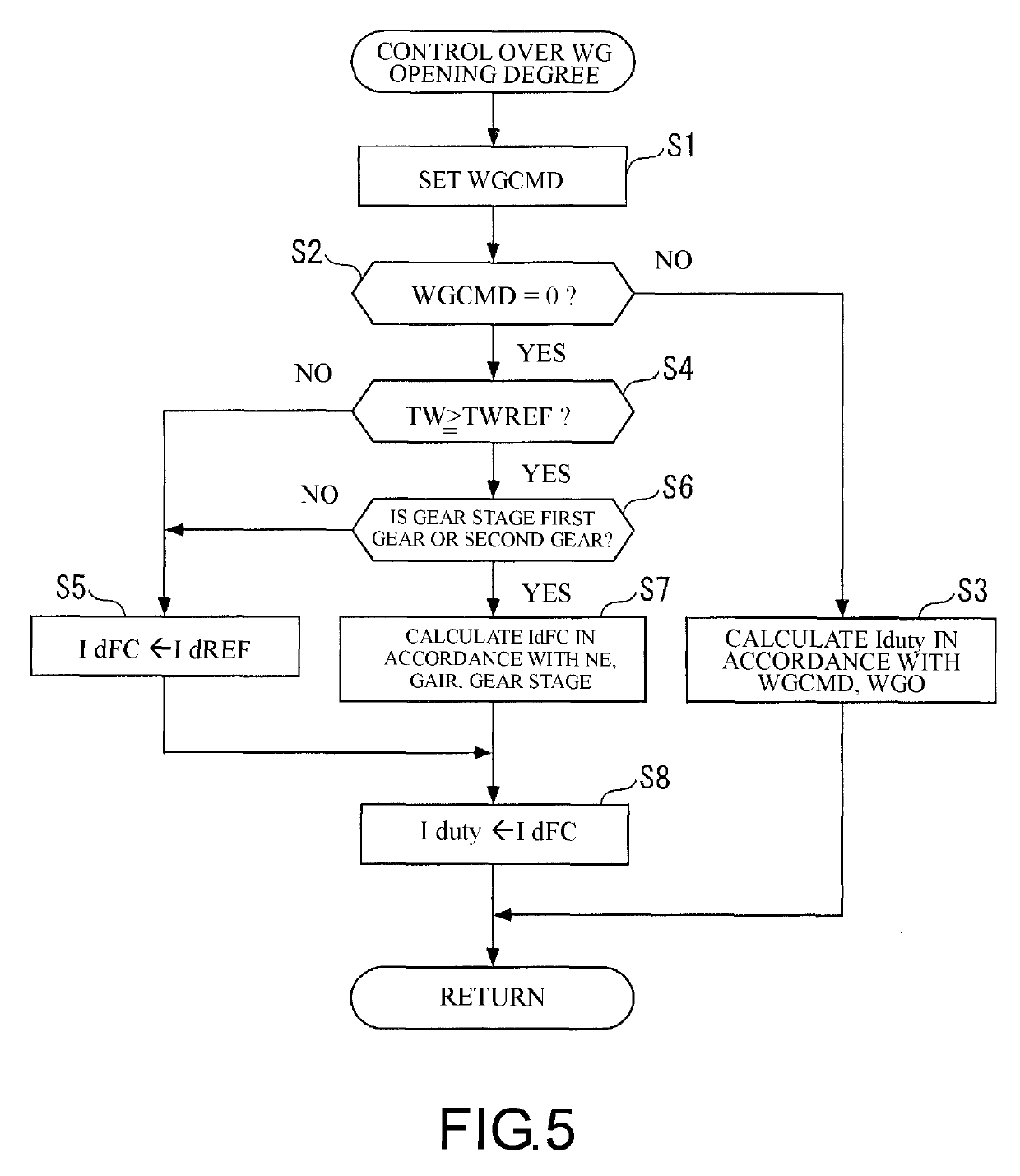Control device for an internal combustion engine
a control device and internal combustion engine technology, applied in the direction of electric control, combustion engines, machines/engines, etc., can solve the problems of increasing the consumption of electricity by the actuator, generating a significant counter electromotive force in the actuator, and taking a longer time to eliminate the significant counter electromotive, so as to achieve the valve opening responsiveness required for the waste gate valve further increase, the effect of high acceleration performan
- Summary
- Abstract
- Description
- Claims
- Application Information
AI Technical Summary
Benefits of technology
Problems solved by technology
Method used
Image
Examples
Embodiment Construction
[0027]Hereinafter, with reference to the drawings, a preferable embodiment of the present invention will be described in detail. As illustrated in FIG. 1, a vehicle V is a hybrid vehicle including an internal combustion engine (hereinafter, will be referred to as “engine”, and it is referred to as “ENG” in FIG. 1) 1 which serves as a driving source, and an electric motor (hereinafter, will be referred to as “motor”) 61 which functions as a driving source and a generator. The vehicle V includes a transmission 52 which shifts a driving force of the engine 1 and / or the motor 61.
[0028]The motor 61 is connected to a power drive unit (hereinafter, will be referred to as “PDU”) 62, and the PDU 62 is connected to a high-voltage battery 63. When the motor 61 is driven with positive driving torque, that is, when the motor 61 is driven with electricity output from the high-voltage battery 63, the electricity output from the high-voltage battery 63 is supplied to the motor 61 via the PDU 62. In...
PUM
 Login to View More
Login to View More Abstract
Description
Claims
Application Information
 Login to View More
Login to View More - R&D
- Intellectual Property
- Life Sciences
- Materials
- Tech Scout
- Unparalleled Data Quality
- Higher Quality Content
- 60% Fewer Hallucinations
Browse by: Latest US Patents, China's latest patents, Technical Efficacy Thesaurus, Application Domain, Technology Topic, Popular Technical Reports.
© 2025 PatSnap. All rights reserved.Legal|Privacy policy|Modern Slavery Act Transparency Statement|Sitemap|About US| Contact US: help@patsnap.com



